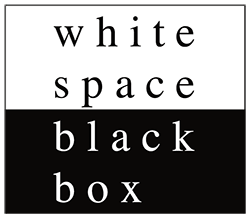
Photo: @ Fortune, Noam Galai
Muskism
Until now, elites were not defined by money or origin, but by their contribution to the common good. Those times are gone. Fortunes in the triple-digit billions are reality. Fat cats as Musks, Bezos, and Putins are splurging on the market of Muskism. This hedonism is not new, what is new is the obscenity with which it is flaunted. An obscenity that as metastases eats away at what holds a community and society together.
Muskism defines elite only by piles of money and fantasies of omnipotence like immortality, refuge on mega yachts or conquest of alien planets. Muskism is fueled by the media because a future no longer seems realistic: the fear of planetary destruction, wars and paradoxical catastrophes make the struggle for a good and just future the concern of a few idealists. The vast majority grasps what they can (still) grasp, in the Here and Now. And are happy about their summer vacation, no matter how big the hole in the ozone layer already is. The rage of the marginalized and those without prospects, their fatalism and self-centeredness fully corresponds to the Muskism and zeitgeist of a society of singularities – driven directly into the clutches of the populists. This is the paradox of the ever-more-and-more culture: the strange fraternization of the overbubbled and underachieved with the super-rich.
With the same cynicism, the global North closes its borders and makes deals with corrupt kleptocrats and dictators. In an over-complex world where there are more dead ends than solutions, everyone becomes a Muskist, celebrating the party while the ship is still floating: «I deserve it, I worked for it» is the common canon.
Even more reckless is the media, which celebrates the clickbait potential as a business model of Muskism. The one who lies gets the most. And if that no longer helps, problems are simply smiled away. Too little water? Just laugh out loud. Saving the planet? For whom? Which part of the rabble deserves that? That’s Muskism ( > click on video below).
In addition to an inflated ego, the DNA of Muskism includes a seemingly long-forgotten machismo. This includes the entire inventory: high-horsepower cock extensions, super yachts built as nuclear-proof fortresses to satisfy the eternal aspirations of their owners. In general, Muskism has in common that the life of the Happy Few is immortal: missions into space or the freezing of genetic material serve this purpose, they see themselves as a «multi-planetary species».
Superyachts are symbols in more ways than one, as French philosopher Grégory Salle noted in his book «Superyachts»: they are striking signs of inequality, injustice and ecological disaster, vehicles of bypassing the radars of financial authorities: At the same time, they are floating environmental disasters. And they are playing fields of obscene inequality: while their owners are among the most influential people in the world, the on-board personnel are often at the mercy of arbitrariness and lawlessness, or young playmates prostitute themselves for a moment of sharing in this luxury.
Money and flesh, that is the unique distinction of the super rich, oligarchs and corrupt tycoons. It’s the unconditional access to flesh: women available at all times, security as a personal, humanized airbag, private armies to enforce their mafia-like fantasies of omnipotence, and – yes, even the Arts are affected – they keep their artists like a dwarf goat in the backyard, turning a blind eye for an astronomical pile of money. From Salvador Mundi to Bansky to Damien Hirst, all these content-less joke-figures and their pimps (galleries, auction houses) are world champions in looking away. This disposability of flesh is the true currency of power today. Everything is market.
Exactly not. What we need is HEALING. Now. Because no child can pay for its mother’s milk[1].
Stay curious.
Hans Rudolf Jost
video @ FOCUS online
PS: HEALING, the Exhibition at Fondation WhiteSpaceBlackBox is open up to 10. November 2023, plan your visit here.

[1] «A child cannot pay for its mother’s milk» Quote from Chinua Achebe, Things Fall Apart, Heinemann 1971.
